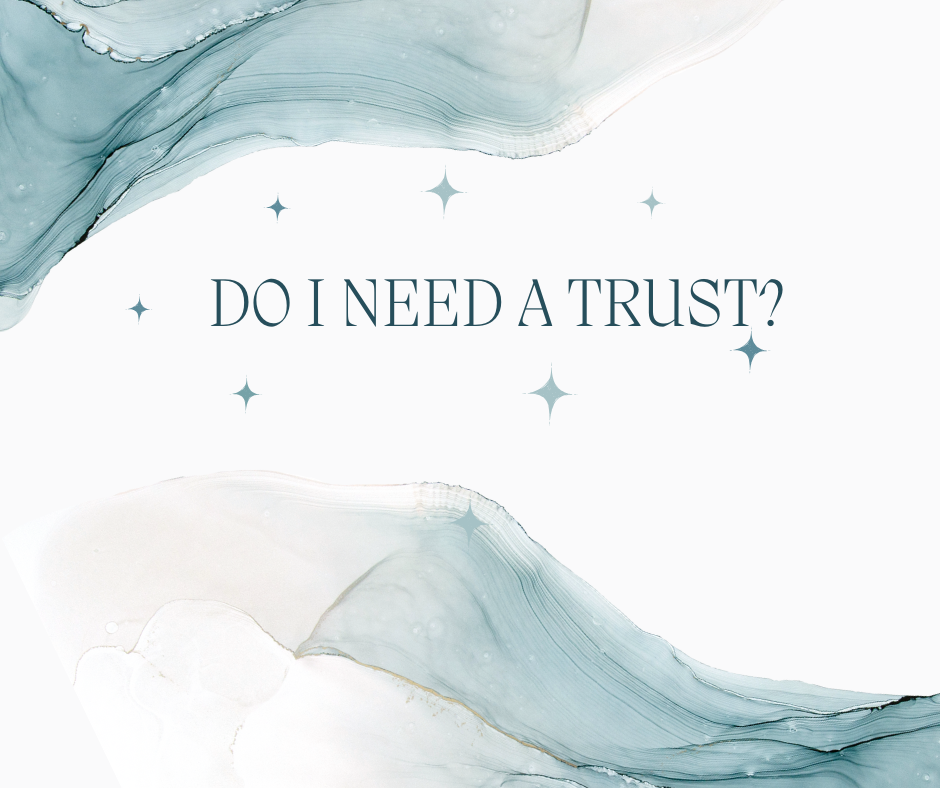



Some trusts protect assets by separating ownership and control of the assets from the owner, and by including creditor protection provisions in the trust document.

There are several types of guardians that you can name when you make a will. If you’re the parent of a minor child or disabled adult, you may want to nominate a guardian for your child in case both you and the other parent pass. Or if you own a pet, you may want to name a caretaker for them.

You may be wondering what the process of creating an estate plan looks like. How long does it take? What information do I need to provide? This short video explains what to expect when working with us.

“The things you do for yourself are gone when you are gone, but the things you do for others remain as your legacy.”

If you don't have an estate plan, your family will be left to figure things out at a time when they're grieving. They might not know what you want, and they'll have to deal with legal procedures, court appointments, and tough decisions. Creating an estate plan is a gift to your family.

Encouraging your 18-year-old child to create an estate plan can provide both you and them with peace of mind and ensure that their wishes are respected in case of unforeseen circumstances. While parents may no longer hold decision-making authority, supporting your child in creating an estate plan can empower them to make decisions about their future.

Estate planning for blended families can be complex because there are often multiple relationships and competing interests to consider.

You love your children more than anything. You’d stop at nothing to protect them.
But what happens if you’re gone? Who’s going to make sure that they’re safe? That they feel loved? That they’re raised the way you want?
If you haven’t named a guardian, then a judge who doesn’t know the first thing about you or your family is going to choose for you. You don’t want that.

Unmarried and same-sex couples should use Wills and, if appropriate, Revocable Trusts to document their estate plan and avoid intestacy, and should consider naming each spouse as Executor and Trustee of the other's Will and Revocable Trust.

Wills and probate are related in that a will is part of the probate process, which is the legal process that distributes a person's assets after they die. Probate is the legal process that validates a will, pays debts, and distributes assets to the beneficiaries. The process involves filing the will with the probate court, proving the will's authenticity, and appointing an executor to administer the estate. The executor is usually a family member named in the will.

End-of-life planning is the process of making decisions and getting your affairs in order for when you pass away. It can help relieve the burden on your loved ones by ensuring your wishes are known and carried out.

An estate plan includes a will but also other documents protecting your family and property while you are alive but incapacitated. It guides your loved ones in handling your financial affairs and medical care.

A power of attorney is a legal document that allows someone else to act on your behalf.
A power of attorney states who you choose to act on your behalf when you cannot.
If you don’t create a power of attorney in advance, a friend or family member might have to go to court to have a guardian appointed if you become incapacitated and are no longer able to make decisions for yourself – and that process can be lengthy, expensive, and very public.

Wills provide instructions on how to distribute your assets after you die. Trusts are legal contracts that allow you to transfer your assets, before or after death, to an account to be managed by yourself (if you are still living) or others. Importantly, assets held in trust do not need to go through probate court—allowing your beneficiaries to access their inheritances more easily and quickly.

A trust is a legal contract that allows you to transfer assets to a trustee to be held and administered for the benefit of a beneficial.
Trusts can be structured to take effect before, after, or in case of incapacitation.
There are many different types of trusts, including living trusts, revocable trusts, and irrevocable trusts

Estate planning for seniors involves carefully organizing and managing assets and personal affairs so that their distribution aligns with their goals and needs. This process encompasses creating wills, establishing trusts, assigning powers of attorney, and planning for long-term care.